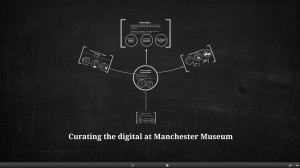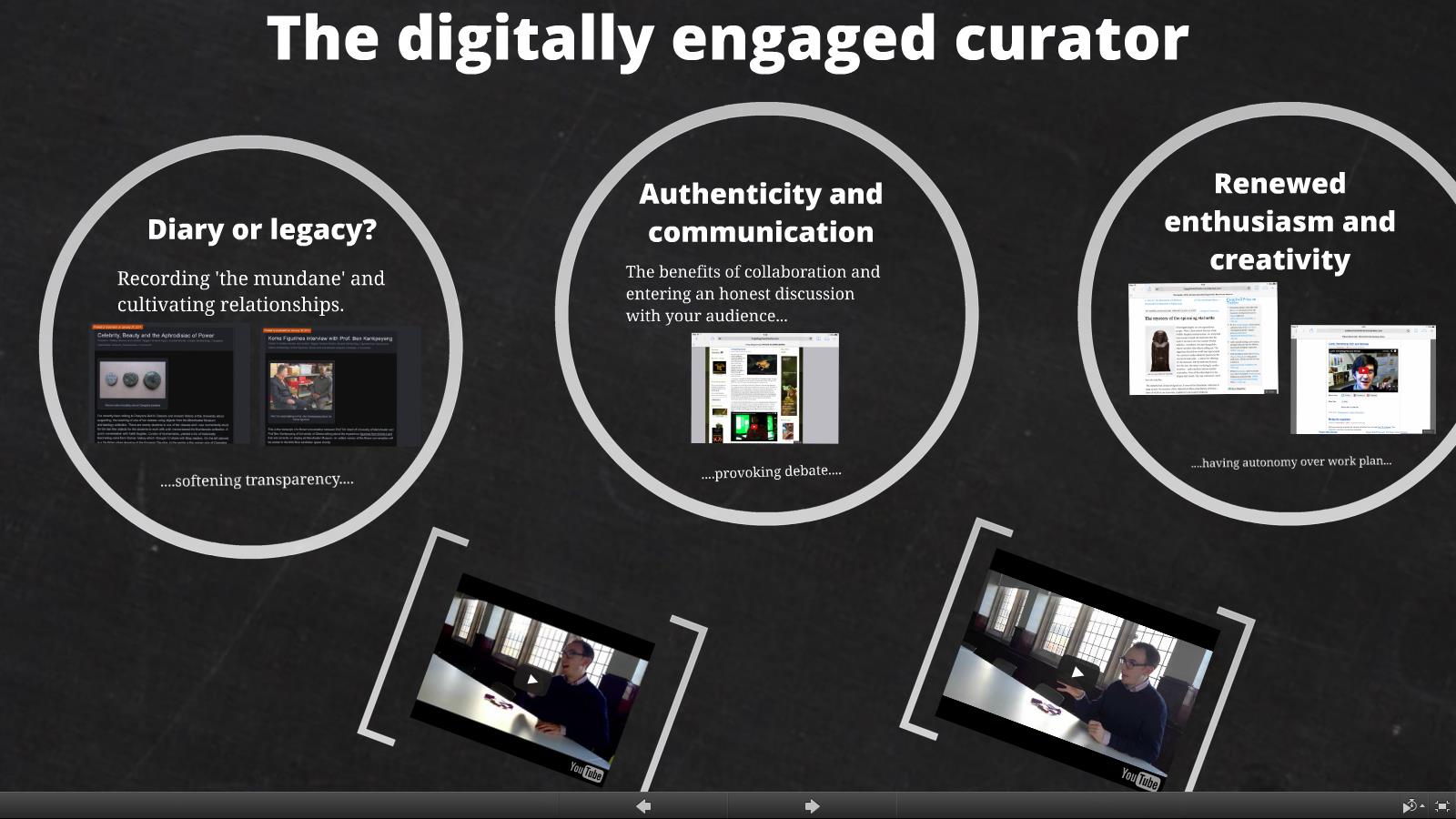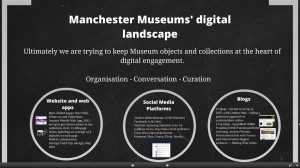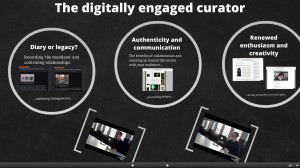 In general, Museums have taken to social media with the ultimate goal to engage the public with their objects and collections. The purpose is foot-fall; the more people that walk through the doors of the museum the better. Social media helps to promote the organisation, open up a dialogue and discussion with the public, and enables curators to talk about the things that they do in an open, informal public environment.
In general, Museums have taken to social media with the ultimate goal to engage the public with their objects and collections. The purpose is foot-fall; the more people that walk through the doors of the museum the better. Social media helps to promote the organisation, open up a dialogue and discussion with the public, and enables curators to talk about the things that they do in an open, informal public environment.
Social Media in the museum sector
The February Social Scholar took a look at two museums via our speakers Kajsa Hartig (Nordiska museum) and Kathryn Box (Manchester Museum). The result was an interesting comparison of approaches and a discussion focused around the similarities and differences that an institution such as SAS might come across compared to the museum sector.
Kajsa Hartig, for example, noted that social media and the digital in general have been ‘disruptive’ to most organisations, including the museum sector. Some have taken to it more than others have; most are still feeling their way; trying one tool and then another to see what works best.
Kathryn Box emphasised ‘enthusiasm’ as the key to using social media effectively. It’s all about discussion, not just plain communication. For Box it is no longer enough to tell people about the collections in the museum, but to open up a dialogue that is both interesting and fun.
The Social Scholar Sessions are a great initiative. To give lunch time presentations to a smaller but mixed audience allows for more informal talks, and the mix of participants allows for sharing of experiences across sectors and departments.
The Social Scholar Sessions will help, I believe, to raise awareness of social and digital in a way that allows for the participants to catch up on ideas and projects relevant to them. There is no one size fits all in adopting social digital, and it is quite disruptive to most organizations. That is why the format of the Social Scholar Sessions is very interesting.
I truly enjoyed presenting at the Social Scholar Sessions and I look forward to further dialogue on the subject of social digital in the arts, culture and academia.
– Kajsa Hartig (Nordiska museum)
Navigating the digital at the Nordiska Museum
This recognition of the ‘digital’ as disruptive is expressed in Hartig’s job title. She is Digital Navigator at the Nordiska museum; a title emphasising that it is her role to help navigate through the disruptive ‘seas’ of the digital and create a bridge between previous set-ups and emerging ones. Hartig notes that:
“There are demands from stakeholders in most organisations to become more social and digital, and that is why taking part of other sector’s experiences is rewarding. Most of us share the same challenges and can learn from others how to overcome them.”
In essence, we learn from each other. For Hartig social media ‘blurs the boundaries’ between individuals and organisations. It encourages interaction with audiences that never existed before.
In her presentation, Hartig noted a series of words that described what we need to consider and think about when we embark on social media as a method for explaining what we do to an outside audience. These were:
Marketing Branding Collecting Collections Management
Outreach Audience research Professional and personal development
A view of the social from Manchester
The Social Scholar seminar series is an excellent way for content creators, marketers, students and lecturers to gain an insight into different digital worlds and how social media works in academia and culture. I really enjoyed presenting at the seminar and I hope the audience found it interesting and useful. I was great to hear people’s experiences and answer some thought-provoking questions. I would highly recommended attending the sessions to anyone who is keen to learn more about social media and how it can be used creatively and effectively.
– Kathryn Box (Manchester Museum)
Kathryn Box meanwhile explained that Manchester museum has 21 blogs, each with their own niche. These include ‘Egyptology’, ‘Frog Blog Manchester’, ‘Dinosaurs, synchrotrons and Space Shuttles!’, and ‘Connecting with Collections’. There is a genuine mix here. Some blogs are serious; others are fun; some are for children; others for adults. There’s something for everyone and something for all curators and staff members to engage in. Blogs need to be fun and interesting for both audience and authors.
The Manchester Museum uses various other social media tools to promote what they do and to cause interest for the public. For instance, their Ancient Worlds Web App did extremely well and on Youtube the ‘Spinning Statuette’ went viral with over 4.6 million views.
This session of the Social Scholar confirmed that we are all still finding our way with social media. There are many tools out there that might be of use but these need to be user-tested in terms of what they provide both creators of content and audiences for that content. Museums are more public-orientated in what they do and therefore the Higher Education sector could learn much from what they do and how they do it.
The next Social Scholar seminar is just around the corner and you are warmly invited to join us. Myles Runham (Head of Online at the BBC Academy) will be talking about his experience of social media at the BBC. The seminar will take place in room 233, Senate House (University of London) at 1pm-2pm on Wednesday 19 March 2014. Register via Eventbrite.
Here’s his speakers abstract:
Online Learning: Developing trends. User expectations of what learning is and how it is offered and supported are changing dramatically and rapidly. Remaining relevant is the most significant challenge for organisations working in this new world. How might we respond to these challenges.
The Social Scholar is a series of lunchtime seminars from the School of Advanced Study, providing training on social media in the research environment. In these sessions we hope to learn together about how to better use social media in a professional capacity and what the difficulties and issues are. The series will look at blogs, Twitter, Facebook, and other social media services.
All Social Scholar seminars are free to attend and open to all. As per usual we will be tweeting from the event @SASNews using the hashtag: #socialscholar.
To learn more about the public events held by the School of Advanced Study and our other activities please go to our website SAS.ac.uk.



